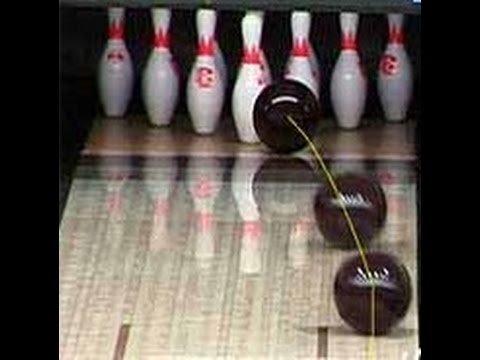"My Ball Stopped Hooking"
- Posted on
- Posted in bolwingball

When a ball is “strong,” we typically are referring to the strength the ball has front-to-back, as opposed to left-to-right. Therefore, if a ball is too strong front-to-back, and there isn’t enough oil in the front part of the lane to accommodate that, the ball will use up all of its energy in the fronts and it won’t have anything left to “turn over” down lane.
Last night, I had a customer come to me asking why their new ball stopped hooking.
I asked them what they meant, exactly, and if they could explain it further. They went on to tell me that their ball was performing very well the first game, but that the ball was beginning to hook less and less each game.
So, why did this happen? Why does this happen to so many? The answer is pretty simple: your ball is too strong.
How can a ball be too strong and not hook, you may be asking yourself. Well, it, too, is simple, actually.
When a ball is “strong,” we typically are referring to the strength the ball has front-to-back, as opposed to left-to-right. Therefore, if a ball is too strong front-to-back, and there isn’t enough oil in the front part of the lane to accommodate that, the ball will use up all of its energy in the fronts and it won’t have anything left to “turn over” down lane.
I explained this to my customer, and he was a little confused, but started to get it. Then he asked, “well, if my strongest ball wasn’t hooking, what should I have done?”
This is where I REALLY confused him. I told him he needed to go to something weaker. The look on his face at this point was hilarious, for what it’s worth. But I then clarified myself. I went on to say that by “weaker” I mean a cleaner cover, one that will allow his ball to store energy, rather than expend it. He still didn’t quite get it, so I took him onto the lanes.
It was there that he really understood what was happening. In theory, he couldn’t understand why his Son!Q would “hook” more than his Code X, but in practice, a lightbulb went off and he was able to see and identify what it was I was explaining to him just minute before.
Now, don’t get me wrong: this isn’t always the case; there are many variables that could be causing your strong ball not to hook. And this is one of the many reasons I always implore you all to have a strong relationship with your PSO. That way you can go to them for these sorts of scenarios.
However, in a perfect world, and assuming your ball was properly drilled and matched up to you and your game, if your new, high end ball isn’t “hooking,” it’s quite possible that this scenario could be happening to you.
